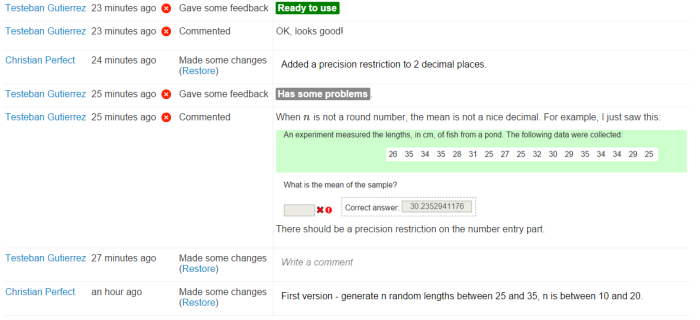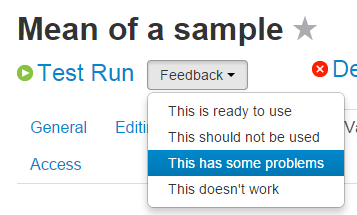
It’s a good idea to work as part of a team when writing a Numbas question: you can proofread each other’s questions, suggest changes, and give the final OK when a question works. I’ve just added a few new features to the Numbas editor which make collaborating with others a bit easier.

A long-standing annoyance in the Numbas editor is the problem of filtering out unfinished or unusable questions from the public database. To go some way towards making that easier, I’ve added a system of feedback “stamps” that concisely label the status of a question or exam. You can label an item as “ready to use”, “this should not be used”, “this has some problems”, or “this doesn’t work”. This could be integrated into a quality-checking process, where a checker can quickly triage questions into “ready to use” and “needs work” sets. At the moment, only user with editing access for a question/exam can use the feedback button. I’d like to look into allowing other users to give feedback, but need to come up with a way of weighting feedback from different users. As a user looking for questions to reuse, you can filter out questions which aren’t ready in the question search. (Documentation)
Next, you can now write free-form comments on a question/exam’s editing history timeline, in addition to the comments an author can write on a particular change. Proofreaders and question authors can use this to recommend changes, report problems, etc.

Finally, this is all tied together by a new notifications system. Whenever something happens to a question/exam you have access to, you’ll get a notification. You’ll also get a notification when someone gives you access to an item in the editor. This should make it easier to keep track of the editing process when working as part of a team.
To tie all these features together, I’ve written a short tutorial on how to effectively collaborate using Numbas, in the online documentation.
I’m still on the look-out for good ideas to make collaboration and organisation within the public database work better. There’s a lot still to be done!